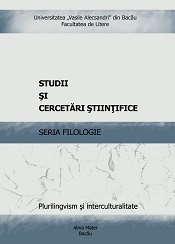„ARTA NEAGRĂ”: ȚARA ÎNDEPĂRTATĂ A LUI TZARA
„The black art”: Tzara’s distant country
Author(s): Vasile SpiridonSubject(s): Language and Literature Studies, Jewish studies, Studies of Literature, Romanian Literature, Cultural Essay
Published by: Editura Alma Mater
Keywords: African culture; Dada movement; exotism; “black poems”; artistic primitivism;
Summary/Abstract: According to an evolutionist hierarchy established in Europe at the end of the XIXth century, the non-Western cultures were considered to be in a ”primitive” stage of evolution. In view of this devaluating judgement, they lacked historical and existential complexity. Therefore, Tristan Tzara set out to rediscuss all the traditional values, completely erasing the existing artistic norms and ideals, directing his interests at the African continent’s art and culture. The discovery and study of the artefacts belonging to the cultures considered by the West to be barbaric and archaic represented for the creator of the Dada movement the alternative to the artistic crisis, suffocated by academic conventions. This paper will highlight the fact that the African culture was not a mere adaption of the exotic elements, but a meaningful intention of breaking the barriers of the European artistic genres and conceiving –stimulated by there far-away cultural realms- new materials, shapes and techniques for the personal creation (such as ingenuity, expansiveness and spontaneity).
Journal: Studii și cercetări științifice. Seria filologie
- Issue Year: 2018
- Issue No: 40
- Page Range: 53-58
- Page Count: 5
- Language: Romanian

